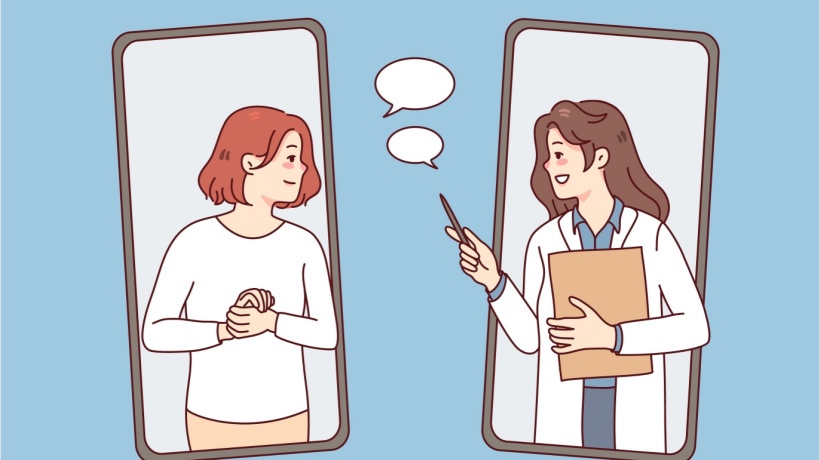Navigating The New Age Of Mental Health Care
The United States has finally come around to an at least somewhat healthy perspective on mental health. In most parts of the country, there is no active stigma surrounding mental health care. In fact, the opposite is true. From pop culture to the employment sector, there is a growing effort to normalize self-care and encourage people to seek help for their mental health challenges.
The definition of what it means to struggle with mental health has also broadened to include stress, anxiety, and other conditions that are commonly felt by working people. Attitudes have improved. Unfortunately, access to care has not. Many parts of the country lack access to robust health support. Online platforms make it easier to see mental health professionals regardless of where you find yourself. But is remote support helpful? In this article, we take a look at the effectiveness of online mental health platforms.
How Does Remote Counseling Work?
Remote counseling technology features essentially the same framework as that of the face-to-face variety. The patient makes an appointment with their counselor and goes through all the typical motions. The only difference is that they could be separated by hundreds of miles when the conversation takes place.
Video conferencing technology has made these meetings more personalized and intimate than a simple phone call would have. There are also applications and websites available that allow patients to instant message licensed therapists and counselors. This type of therapy is not as structured, but it does give people immediate access to mental health support when they need it. Below, we take a look at why this type of counseling may actually work better for some people.
Why Remote Counseling Might Work Better For Some
Some Patients Have Physical Or Emotional Travel Restrictions
One of the nicest things about all forms of remote patient care is that it makes getting help significantly more accessible for people who are restricted to their houses, either for physical or emotional reasons. In some forms of remote patient care, this arrangement is most beneficial to elderly people, or those recovering from a surgery that left them less mobile than usual.
In the case of mental health care, it might apply more specifically to people who suffer from agoraphobia or social anxiety. It’s also worth noting that travel restrictions may disadvantage people who can’t afford a car. For them, teleconferencing technology may well be the most practical way to receive consistent care.
More Options
Let’s imagine that you are living in Mattoon, Illinois. With a five-figure population and no major towns less than an hour away, you don’t have a ton of access to robust mental health care. There is one therapist in the neighboring town of Charleston, Illinois.
You did try getting care there, but you and the therapist never really clicked. Now, your options are to drive two two-hour round trips to St. Louis once a week or to go without care. For years, you chose the latter. But, with a licensed counselor just a click away….
You see where we are going with this. Remote patient care gives choices to people who didn’t previously have them. Now, if you need a specialist who isn’t available in your community, or you’ve just never clicked with the care providers within driving distance, you have ways to still access high-quality care.
It Can Be More Affordable
There is a bit of an asterisk attached to this consideration. Some remote counseling opportunities are cheaper than their physical counterparts. This is particularly true when you employ a subscription service—remote care on demand whenever you need it.
If you are going through a standard counselor who offers both in-person and fully remote counseling, you may not get a break on the price. They do still need to price their services to account for their overheads—building, secretary, etc.—even if you aren’t using those services. Still, if price is a barrier to care (and for many people, it is) remote services can be a good way to get the help you need without breaking the bank.
Are There Downsides To Remote Patient Care?
There is a counseling concept often referred to as “therapeutic reliance.” It refers to the relationship that develops over time between the counselor and their patients. All forms of health care are improved by patient and care provider compatibility, but in therapy, it is a must-have quality. Patients need to feel like their counselors are active partners in their mental health journey, or the relationship will never work.
While this type of bond can be established remotely, there is definitely a heightened degree of difficulty. Studies have consistently shown that it is a little harder to establish productive connections through fully remote communication. That certainly doesn’t mean it is impossible. It does mean that it might be harder for some patients to fully benefit from the services of remote counseling—particularly when they are struggling with complex conditions.
Who Is Remote Counseling Good For?
Anyone struggling with mental health concerns should seek some form of counseling. Once you conclude that mental health services are necessary to help you live your best life, the next choice is to decide what form those services should take.
Remote counseling is an accessible and worry-free way to get basic care. While it may not be the right fit for everyone, it is certainly better than no care at all. We now live in an age where about one-quarter of adults admit to struggling with their mental health. Members of the LBGTIQA+ community are particularly at risk, often experiencing discrimination-related stress and anxiety.
If you are dealing with stress, anxiety, or any other form of mental health disorder, do not wait to seek care. A better life may very well be waiting for you on the other side of your first appointment with a mental health professional.

